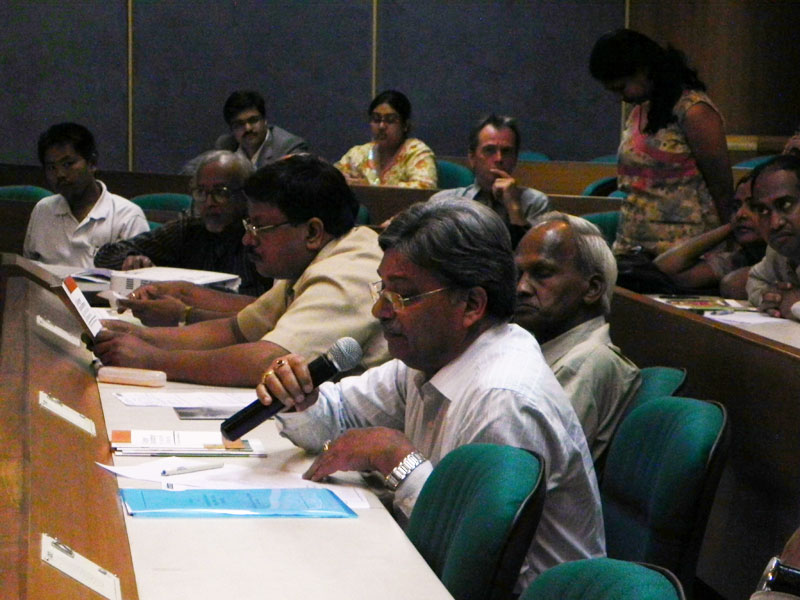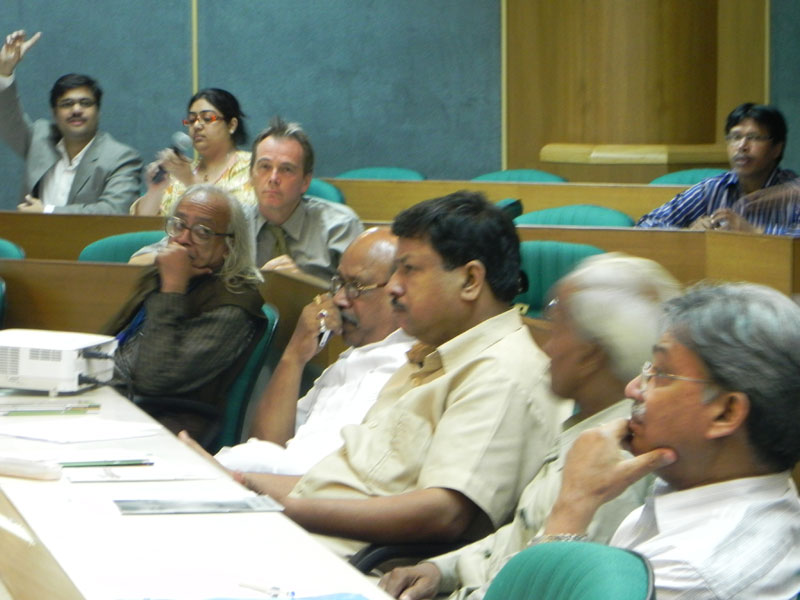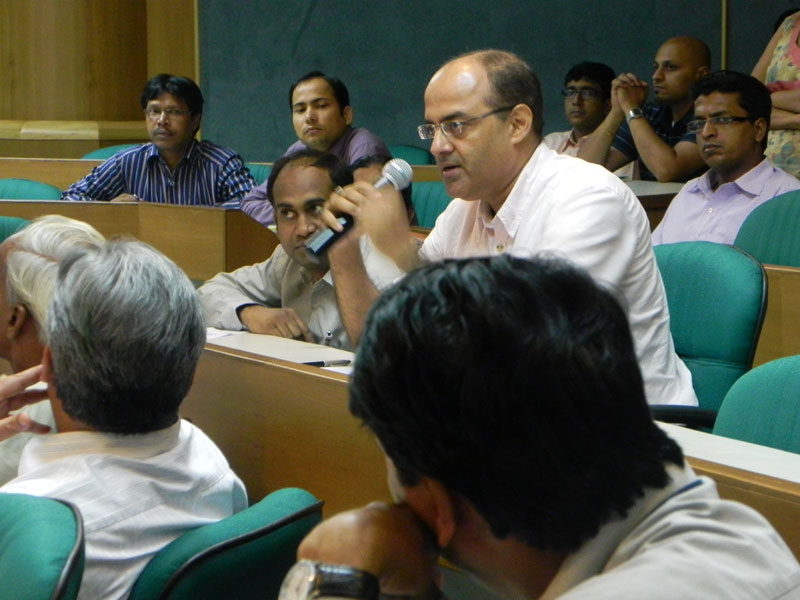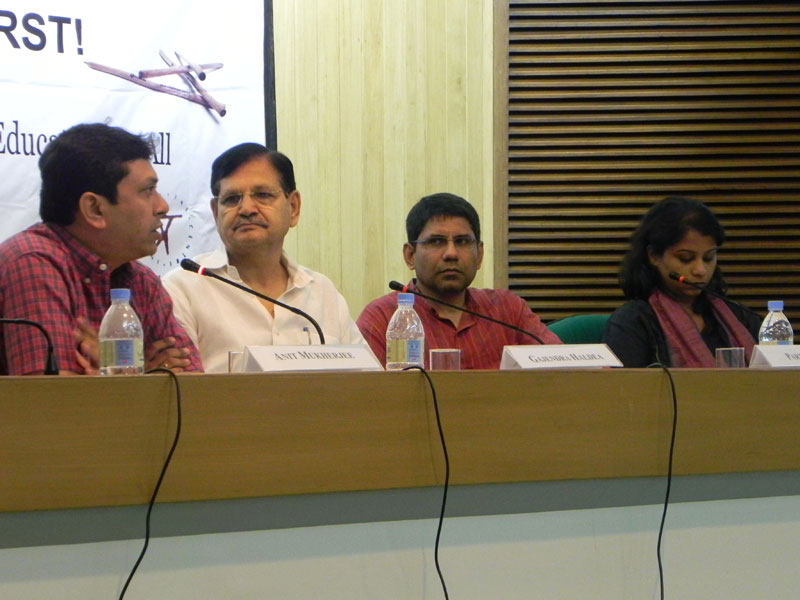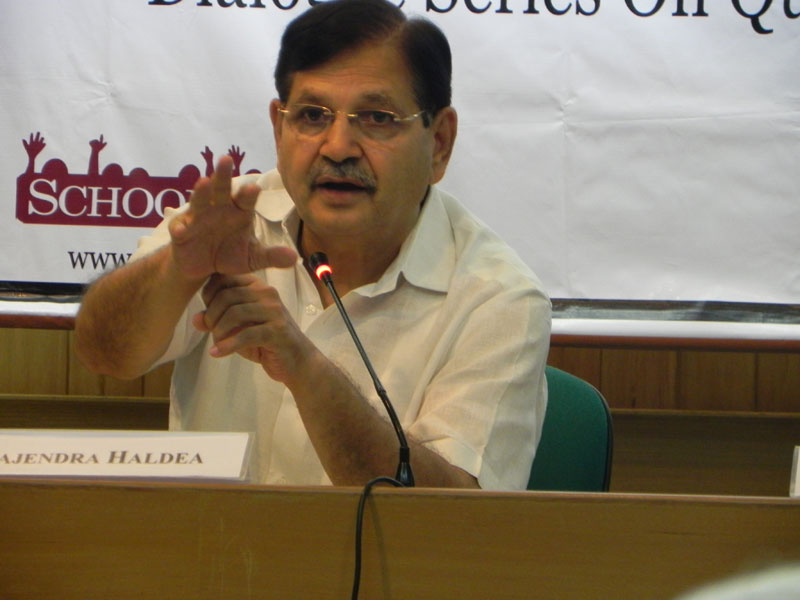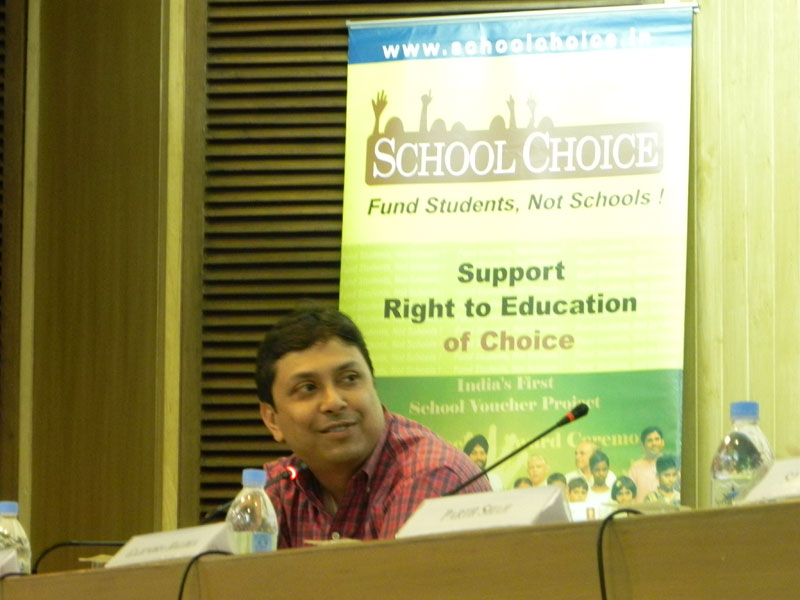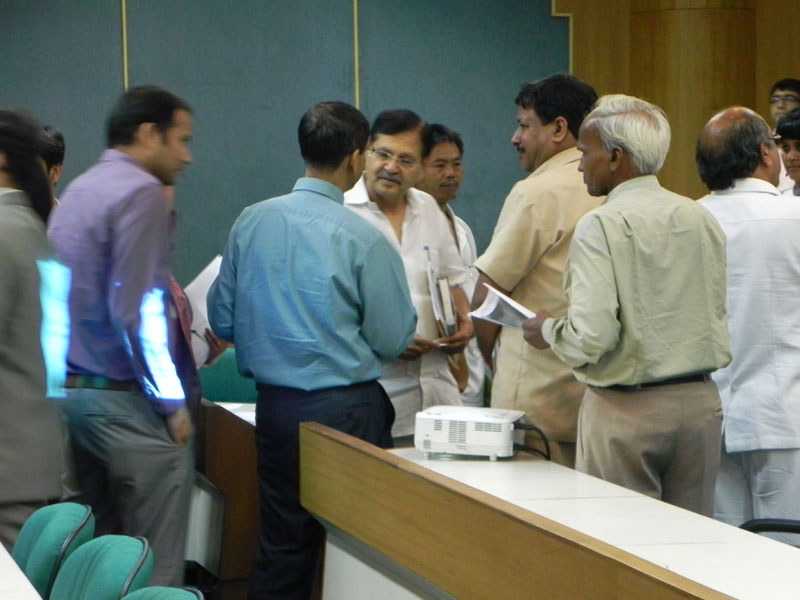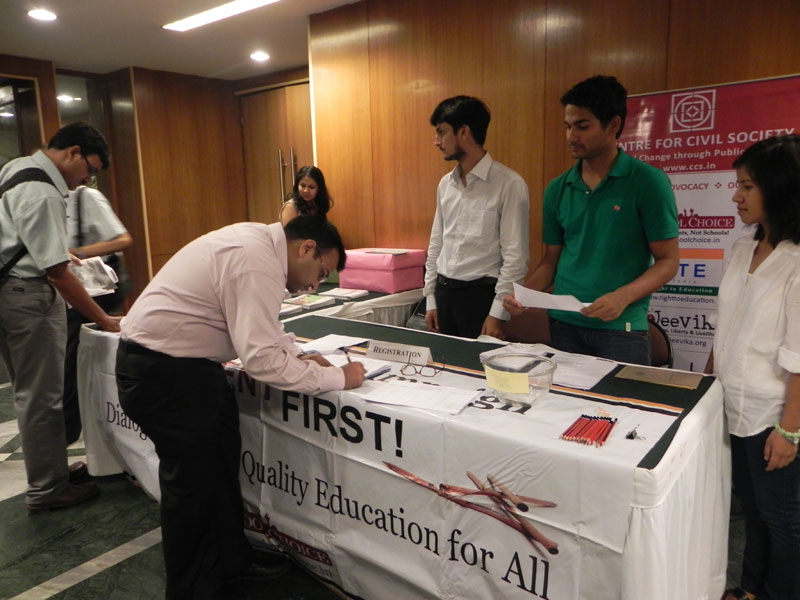 |
|
|||||||||||||
|
||||||||||||||||||||||||||
| Home > Student First! Dialogue Series July 2011 DialoguePanel Discussion on Public Private Partnerships for Quality in School Education
School Choice Campaign and India Habitat Centre organised an open forum discussion on Public Private Partnerships for Quality in School Education on 13 July 2011. Gajendra Haldea, Adviser to Deputy Chairman and Principal Adviser at Planning Commission, Anit Mukherjee, Co-author, PAISA Report and Associate Professor, National Institute of Public Finance and Policy and Parth Shah, President, Centre for Civil Society were panellists for the evening. The discussion was chaired by the associate director of School Choice Campaign, Sujatha Muthayya. Mr Mukherjee stated that India has a great demand for education and both private and public schools have a role in school education and both should come together in serving the purpose. Drawing from traditional models of PPP - BOT and BOOT for education practice, he said that the private sector has immense scope to participate in building more schools, operate schools as well as transfer necessary skills to the public sector. Emphasising on the importance of increasing the quality of delivery of education, he stated that none of the existing models in school education deliver this quality. Mr Haldea stated that while the PPP model evolved in UK, India has not completely adopted PPPs. The MHRD for example has come up with a scheme of 6000 schools out of which 2500 schools will follow the PPP model. He spoke of the rising gap between existing number of schools and rising number of students and that there are two ways to handle this challenge. One is to build more resources and more schools. The other is to involve the private sector which can ensure better use of government resources to deliver quality outcomes. Mr Shah spoke of the widespread dissent against PPPs in India. Using the Gyanodaya scheme in Rajasthan as an example that uses vouchers for education, he highlighted existing working PPP models. He stressed on the need to break the monopoly of the supplier and the need to promote choice and competition within education service delivery through vouchers and conditional cash transfers. He concluded that the challenges for PPP in education in India are not only practical but also philosophical. The session highlighted the tremendous opportunities for PPPs to achieve quality in education. The dialogue concluded with a question and answer session between the delegates and the panelists.
|
||||||||||||||||||||||||||||
SUPPORT US |
||||||||
|
||||||||
EVENTS |
||||||||
|
||||||||











